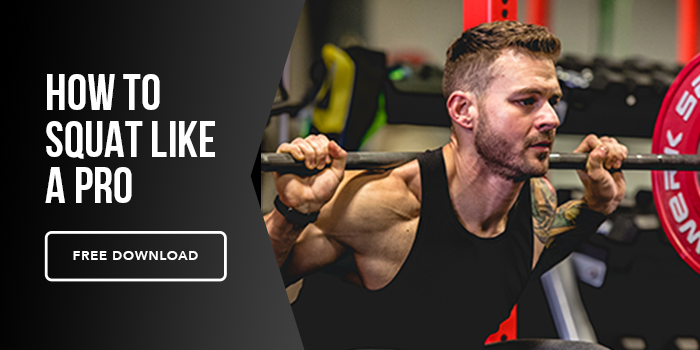When people talk about longevity, it usually sounds like a wellness retreat brochure: leafy greens, long walks, and an Instagram worthy sunset.
That’s all great. But if your goal is not just to live longer — but to live well longer — you’re going to need more than a salad and some steps.
You’re going to need muscle. And the most reliable way to build it? Strength training.
This isn’t just about aesthetics. This is about preserving the one thing that gives you real freedom as you age: physical autonomy.
Longevity Isn’t About Just Living Longer — It’s About Staying Capable
There’s a big difference between lifespan (how long you live) and healthspan (how long you live well). You want the second one. No one’s dream is to spend an extra ten years in a hospital bed watching re-runs of Family Feud.
And if we’re being honest, loss of strength and muscle mass is one of the biggest reasons people lose independence with age. They fall. They break a hip. They stop walking as much. Then they stop walking at all.
The technical term for this slow decline? Sarcopenia — age-related muscle loss.
But it starts earlier than people think — around your 30s — and accelerates with each passing decade, unless you actively resist it.
Enter resistance training.
Muscle Mass Is a Better Predictor of Longevity Than BMI
Most people still focus on body weight when thinking about health. But research shows that muscle mass is a far better predictor of all-cause mortality than body fat percentage or BMI alone.
In one large study, people with higher levels of muscle mass had significantly lower risks of death — even when adjusting for age, smoking, and other factors.
Put simply: the more muscle you carry into old age, the better your odds of surviving and thriving.
Strength Training Lowers Risk of Chronic Disease
This part often gets buried beneath the hype around cardio — but strength training improves many of the same health markers:
- Blood glucose regulation: More muscle means better insulin sensitivity. Your muscles act like a sponge for glucose — pulling it out of your bloodstream and storing it as glycogen. That’s good news for preventing type 2 diabetes.
- Cardiovascular health: Strength training can lower blood pressure, improve blood lipid profiles, and reduce inflammation. No, it won’t replace your statin. But it might reduce your need for one.
- Bone density: Weight-bearing movements stimulate bone growth and reduce the risk of osteoporosis — a critical factor in staying mobile and fracture-free.
That’s not just longevity. That’s quality longevity.
You Don’t Need to Train Like a Powerlifter
When people hear “strength training,” they imagine a barbell twice their bodyweight and someone yelling “one more rep!” into their ear.
Not necessary.
Most of the benefits associated with strength training and longevity come from moderate, consistent training — not maximal effort. You don’t need to deadlift your way onto a leaderboard. You just need to train your muscles with intention, two to three times per week.
Think of it as “retirement prep,” just for your body. You’re investing now so you can withdraw function later.
Functional Strength > Fancy Equipment
Longevity doesn’t require complicated routines. In fact, it rewards simplicity done well.
- Squatting down and standing back up = staying able to use a toilet independently.
- Carrying groceries = maintaining grip strength, which is itself a strong predictor of mortality.
- Getting up off the floor without assistance = a skill that may one day save your life.
These aren’t gym party tricks. These are survival skills for future-you.
The bonus? They also happen to make you look better in the present.
Mental Resilience Grows Alongside Muscle
There’s also a less-discussed benefit of strength training: the psychological side.
Training teaches you to show up, even when you don’t feel like it. To push a little further, to recover smarter, to stay consistent over weeks and months — and eventually, years.
That builds mental resilience — a trait that pays off not just in the gym, but in every area of life, especially as you age.
Plus, there’s growing evidence that strength training helps improve cognitive function and reduce symptoms of depression. Turns out, picking things up and putting them down might be one of the best things you can do for your brain.
Strong People Fall Less — and Recover Better When They Do
Falls are a leading cause of injury-related death in older adults.
But here’s what matters: the ability to catch yourself, or at least not shatter on impact.
Strength training improves balance, proprioception, and coordination. It gives you more reactive strength — so if you do trip, your legs (and the nervous system driving them) can actually respond.
And if you do fall? Muscle cushions the blow and speeds up recovery. It’s the difference between a bruise and a broken hip.
You Can Start at Any Age — But Don’t Wait
One of the best things about strength training? It works at any age. Yes, even in your 70s and 80s.
But the earlier you start, the more runway you have to build and maintain muscle mass.
Muscle is easier to preserve than it is to build from scratch later in life — especially once hormone levels drop and recovery slows.
The Bottom Line
If your goal is to live longer, move better, and stay independent well into your later decades, strength training needs to be part of your plan.
It’s not just about how long you live — it’s about how well you live.
And while leafy greens and long walks help, they don’t do what lifting weights does:
- Preserve muscle
- Build bone density
- Improve metabolism
- Reduce risk of chronic disease
- Keep you off the sidelines — and out of the hospital






